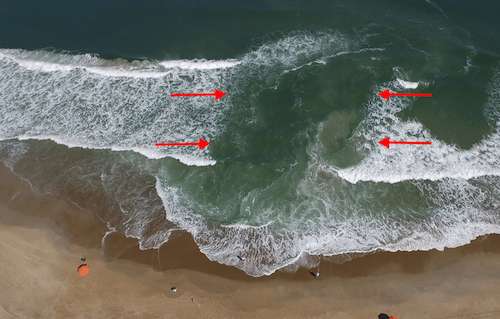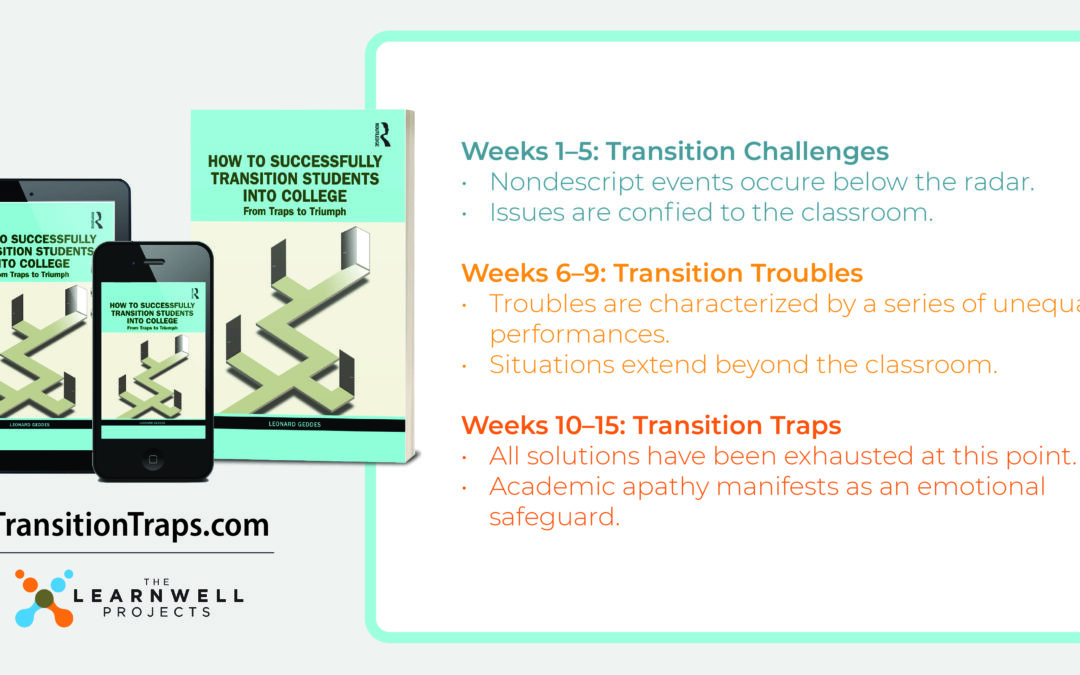
by Leonard Geddes | Jul 10, 2024 | Article, Blog Post
In higher education, infrastructure plays a critical yet often invisible role in the success of both educators and students. Academic infrastructure, much like the physical systems that underpin our daily lives, forms the foundation upon which meaningful and impactful...

by Leonard Geddes | Jul 2, 2024 | Article, Blog Post, The Well
On July 4th, 2019, I had a striking revelation that inspired me to write my recently published book, How to Successfully Transition Students into College: From Traps to Triumph. My family was staying with our extended families in a beachfront house on Kure Beach, a...

by Leonard Geddes | Jun 25, 2024 | Article, Blog Post
Despite the entrenched perception, colleges and universities do not have enrollment problems. Higher education institutions are grappling with significant challenges, often rooted in the split-focused nature due to a misalignment in their triple bottom line approach....

by Leonard Geddes | Jun 11, 2024 | Article, Blog Post
As college educators, we constantly seek ways to enhance our students’ learning experiences and outcomes. Understanding the underlying approaches students use to tackle academic work can provide invaluable insights into their success or struggles. There are...

by Leonard Geddes | Apr 29, 2024 | Article, Blog Post, The Well
As the academic year draws to a close, it’s common to find students, faculty, and staff feeling a bit emotionally drained. Remember, it’s not unique to this year—many of us have been here before. But what if we could end the year on a high note instead?...






